20 Must-Have Tools for Plumbers
10 min read
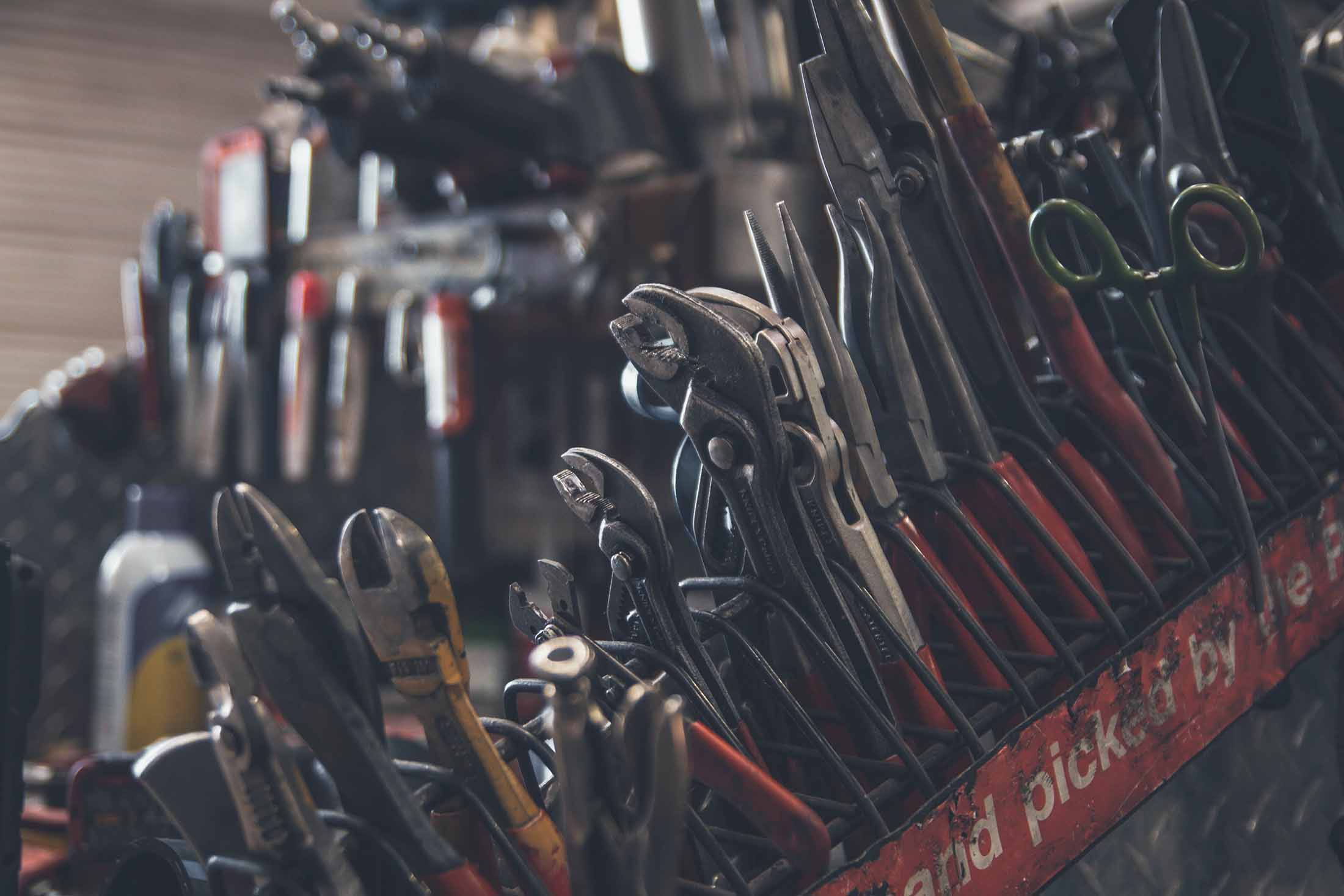
You can’t have a plumbing business without the right tools. And you may lose a client if you show up at a house to repair a pipe only to tell your customer they’ll be out of water for a few more days because you don’t have the right equipment for the job.
Using the right tools allows you to complete plumbing jobs without any hiccups. In this guide, we’ll cover 20 essential plumbing tools, including wrenches, plungers, protective gear, software, and everything in between.
Jump to the section that most interests you:
20 Must-Have Tools for Plumbers
Plumbers need to tackle common problems like fixing leaky pipes and more complicated jobs like repairing damaged water heaters. Whether the problem is big or small, plumbers need to have the knowledge to navigate the pipe systems on a property and the proper tools to get the job done.
Because there is no way to predict what calls you’ll have to respond to, you need to have a wide variety of tools, so you’re fully equipped to resolve any customer call with ease.
Wrenches
Plumbers commonly use wrenches to screw, fasten, tighten, or loosen pipe fittings. Unfortunately, those pipe fittings can vary in size, so there is no “one-size-fits-all” wrench that you can buy. You’ll need wrenches in a variety of shapes and sizes, so you always have the right-sized tool for every job.
When shopping for wrenches, it’s important to check the style and designation of the wrench. Some wrenches are measured in metrics, while others are designed for standard measurements. You will likely need both standard and metric wrenches as both are common measurements that you will encounter at different job sites.
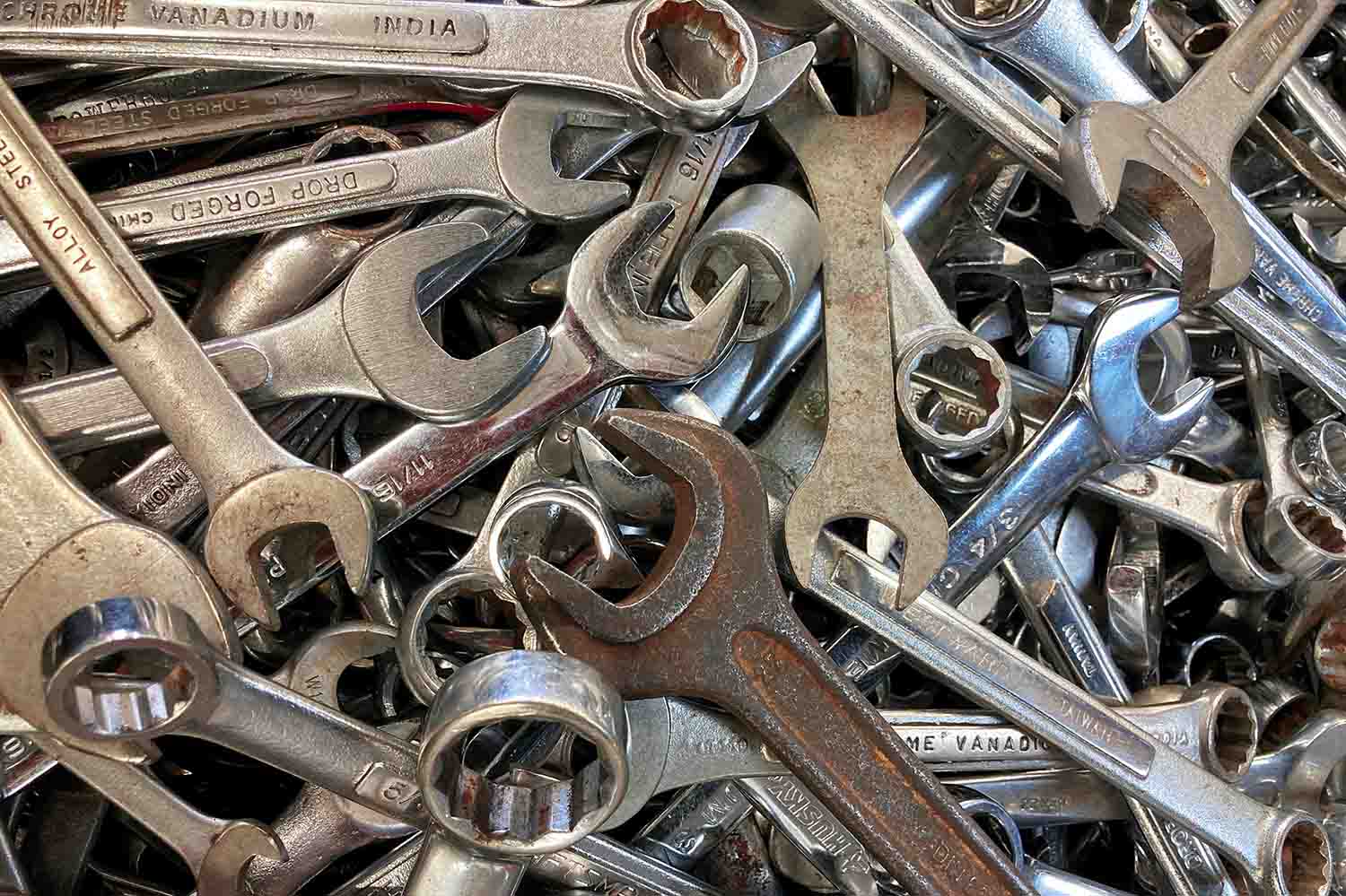
Pipe wrench
Pipe wrenches are a common tool for plumbers because they are specifically designed to tighten or loosen pipe fittings. These wrenches are curved at the top and will allow you to adjust and tighten the jaws of the wrench to get a better grip on the pipe fitting. Pipe wrenches are unique because the jaws of the wrench are serrated, which is ideal for making adjustments to threaded pipes. Look for a pipe wrench with a comfortable handle and adjustable jaws that fit a wide range of pipes.
Adjustable wrench
Adjustable wrenches are very similar to pipe wrenches, with the primary difference being the shape of the wrench jaws. Unlike pipe wrenches, adjustable wrenches have an open end that allows them to grip nuts and bolts to loosen or tighten them. You should have a wide variety of adjustable wrenches in both standard and metric measurements, as you will encounter many different sizes of nuts and bolts on the job.
Basin wrench
This tool is specifically designed for installing and uninstalling sink faucets, earning it the fitting nickname of “sink wrench.” Basin wrenches have a long handle and an adjustable head that allows you to reach tight spaces that may otherwise be hard to get to. Select a basin wrench that allows you to turn both clockwise and counter-clockwise, so you can tighten and loosen faucets with the same tool.
Faucet key
“Faucet key” refers to a specific type of tool that is used to control the flow of water through faucets that are usually located outdoors, like a hose bib. There are two types of faucet keys: sillcock and cross. These tools are inexpensive and can fit snugly in any toolkit due to their small size. While you may need a specific type of faucet key for a job, most plumbers can select a faucet key based on their personal preferences, as all keys will complete the same basic function.
Where to buy this equipment
Some wrenches—such as pipe and adjustable wrenches—are easy to find at most major retailers, including Walmart and Target. However, for high-quality and specialized wrenches, you should look for a local hardware store with a wide selection so you can find the best wrenches for your needs.
Saws and cutting tools
Pipes won’t always be easy to access. You need to be able to cut through floorboards and walls to access pipes for repair. You’ll also need to be able to cut through pipes and tubes for custom fixes and to replace pieces of old pipe. Many of these tools are sharp and create an increased risk for whoever uses them, so be sure to look for additional safety features when shopping.
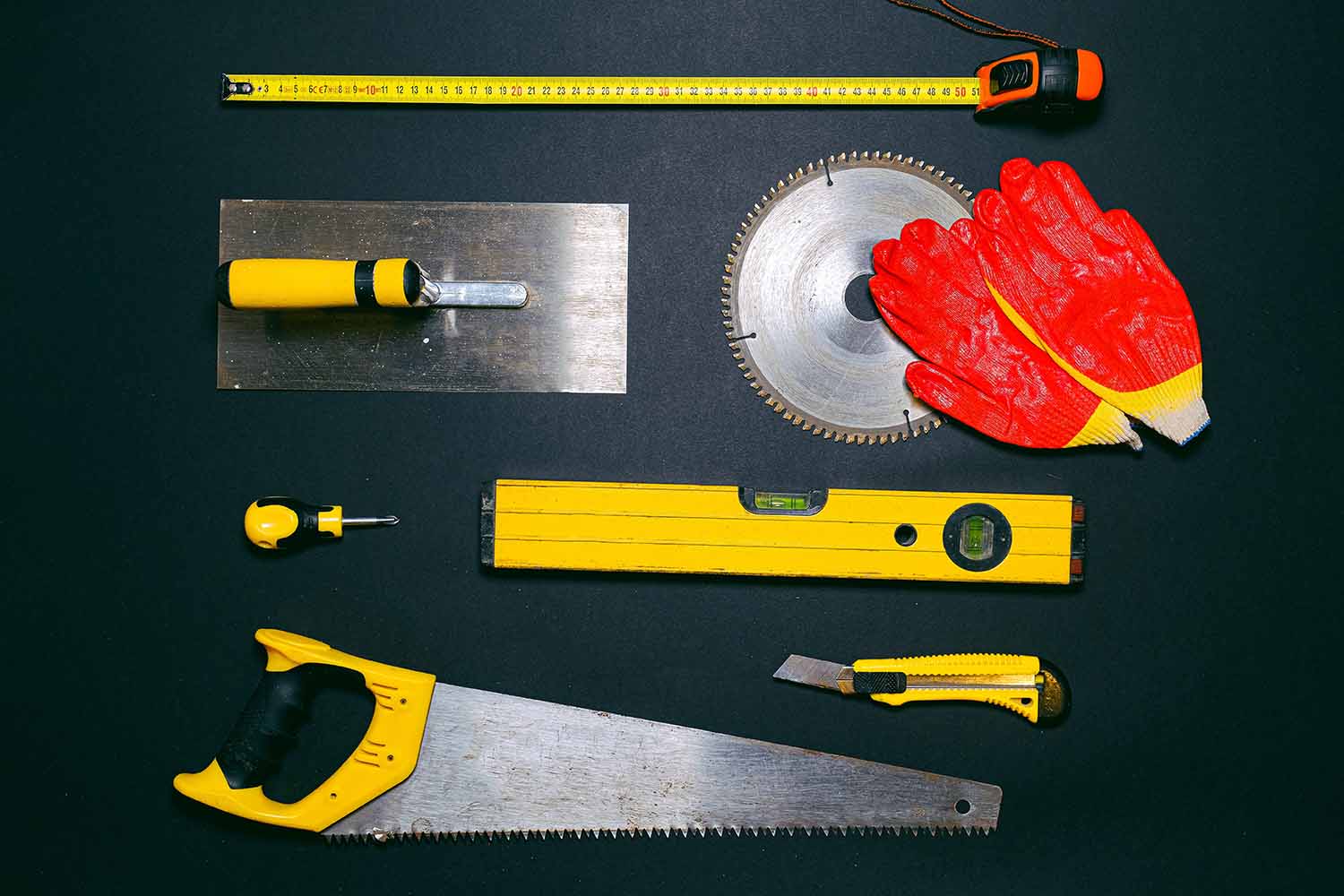
Hacksaw
Hacksaws cut through materials like wood or plastic and are often used by plumbers to cut through things like PVC pipe. The most common design for a hacksaw is a C-shaped frame that supports a thin saw blade that can be replaced when it dulls. You should look for a saw with a sturdy frame that serves as a good handle, so your hand won’t slip while you’re using it. A saw with an easy-to-replace blade will save you time in the event that you need to swap it while you’re on the job.
Pipe cutter
Pipe cutters are handheld tools that cut cleanly through metal pipes and, in some cases, are more efficient than a hacksaw. There are a few different types of pipe cutters, each designed to cut through a specific type of pipe. Those types of cutters include:
- Copper tube cutters
- Steel pipe cutters
- Cast iron snap cutters
- PVC tubing cutters
- CPVC and PEX cutters
Tube bender
This tool bends tubes by forcing the pipe into a new shape by applying pressure to the material. Plumbers can do this manually, but tube benders make the process much faster and help to preserve the integrity of the pipe. When shopping, look for a pipe bender that you can use on a variety of materials.
Metal file
Metal files use a set of grooved teeth that you rub over metal to smooth out the surface. Different materials are filed in different ways, so you will either need to purchase different files for each metal you work with, learn different filing techniques, or a combination.
Where to buy this equipment
You may be able to find some of these saws at common hardware stores like Lowe’s or Home Depot, but the selection may be limited. To find specialized cutters, search Google for a local plumbing supply store, which is more likely to have a large inventory for you to shop from.
Personal protection
Plumbers use a variety of tools, each of which comes with its own safety risks. You can mitigate these risks with protective equipment for you and the rest of your plumbing team.
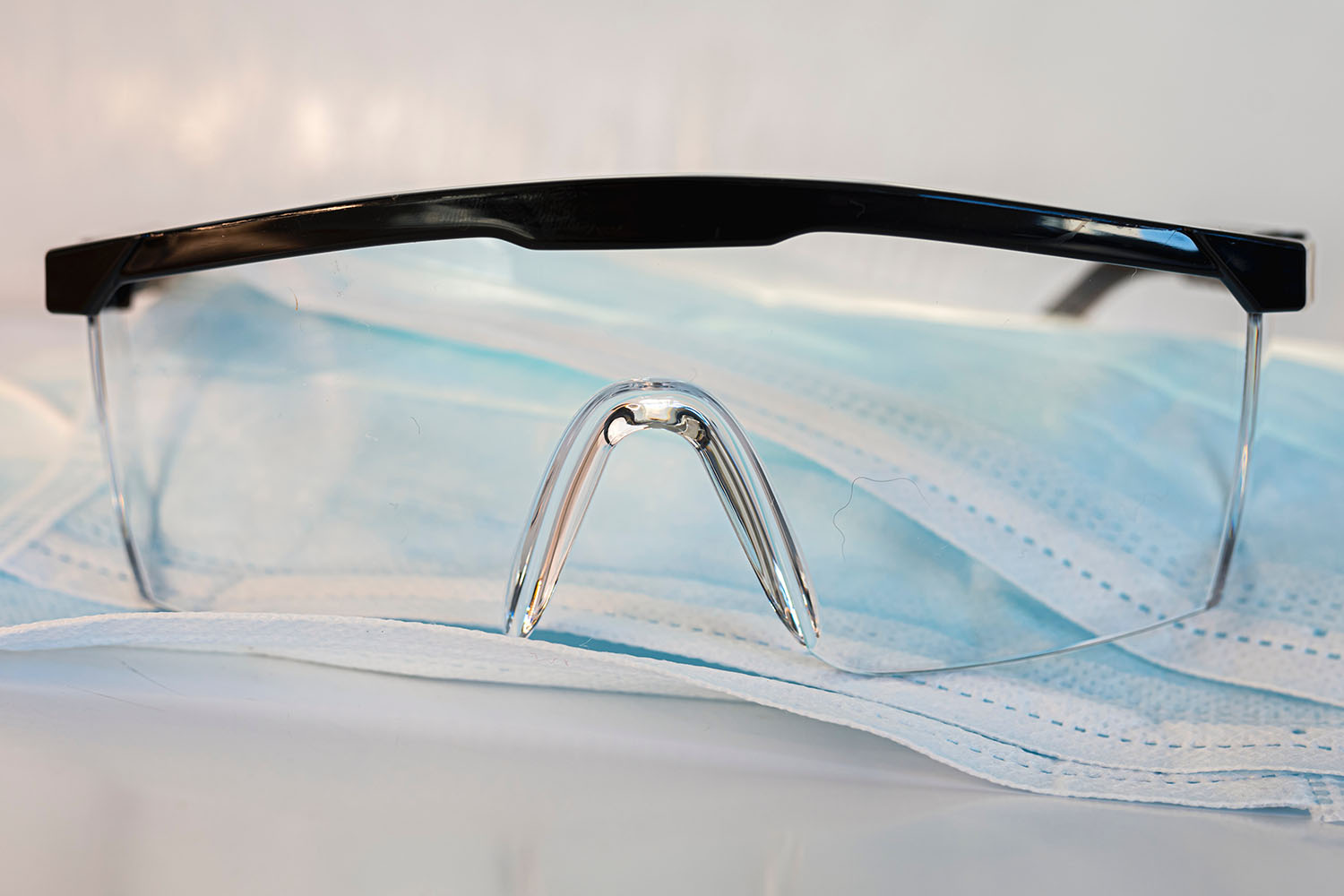
Gloves
Disposable gloves protect a plumber’s hands from hazardous materials and are easy to dispose of. Look for durable, waterproof gloves that you can re-use if they don’t become contaminated with hazardous materials. It’s also important to invest in work gloves that are not disposable that you can use to protect your hands when using power tools or working in dangerous environments.
Goggles
Goggles and masks help to protect a plumber’s eyes and lungs from common hazards like sulfur dioxide, mold, solvents, and asbestos. Look for goggles and masks that have a high safety rating and positive reviews from industry publications like Environmental Design and Construction Magazine and forums like Plumbing Zone.
Heat shield
Heat shields protect plumbers from sparks and flames when they use torches or soldering tools for jobs. You can buy a soldering flame protector or use a DIY solution like a piece of sheet metal to shield yourself, which is a common solution listed on industry forums.
Where to buy this equipment
Many hardware stores carry protective equipment, including Lowe’s, Home Depot, and some mom-and-pop shops. You can also buy this equipment from online retailers like Grainger and DiscountSafteyGear.com.
Plungers
Blocked drains are a common problem that plumbers use plungers to deal with. Plungers clear blocked pipes by forcing water up and down to loosen a clog. Based on your personal preference, you may choose to buy different types of plungers or one versatile plunger that you can use for every job.
Cup
Cup plungers have a flat bottom and are best used to unclog sinks and other flat surfaces. The cup-shaped bottom can form a tight seal on a flat surface, which allows it to move water up and down by displacing air.
Flange
Flange plungers look similar to cup plungers but are designed to unclog toilets. They have extra plastic that enables them to seal against curved surfaces.
Accordion
Accordion plungers are more difficult to use because they are made out of a more rigid plastic than other plungers. Once properly secured, this rigid design creates a powerful seal that some claim makes it better than any other type of plunger.
Where to buy this equipment
Plungers are an essential tool not just for plumbers but for homeowners as well. This means you can buy all types of plungers at nearly every local hardware store or commercial retailer, including Home Depot and Target.
Electric tools
Almost all plumbing jobs can be done with manual tools, but electric tools can often do the work much faster. While there aren’t electric options for all plumbing tools, there are a few electric tools that every plumber needs in their toolkit.
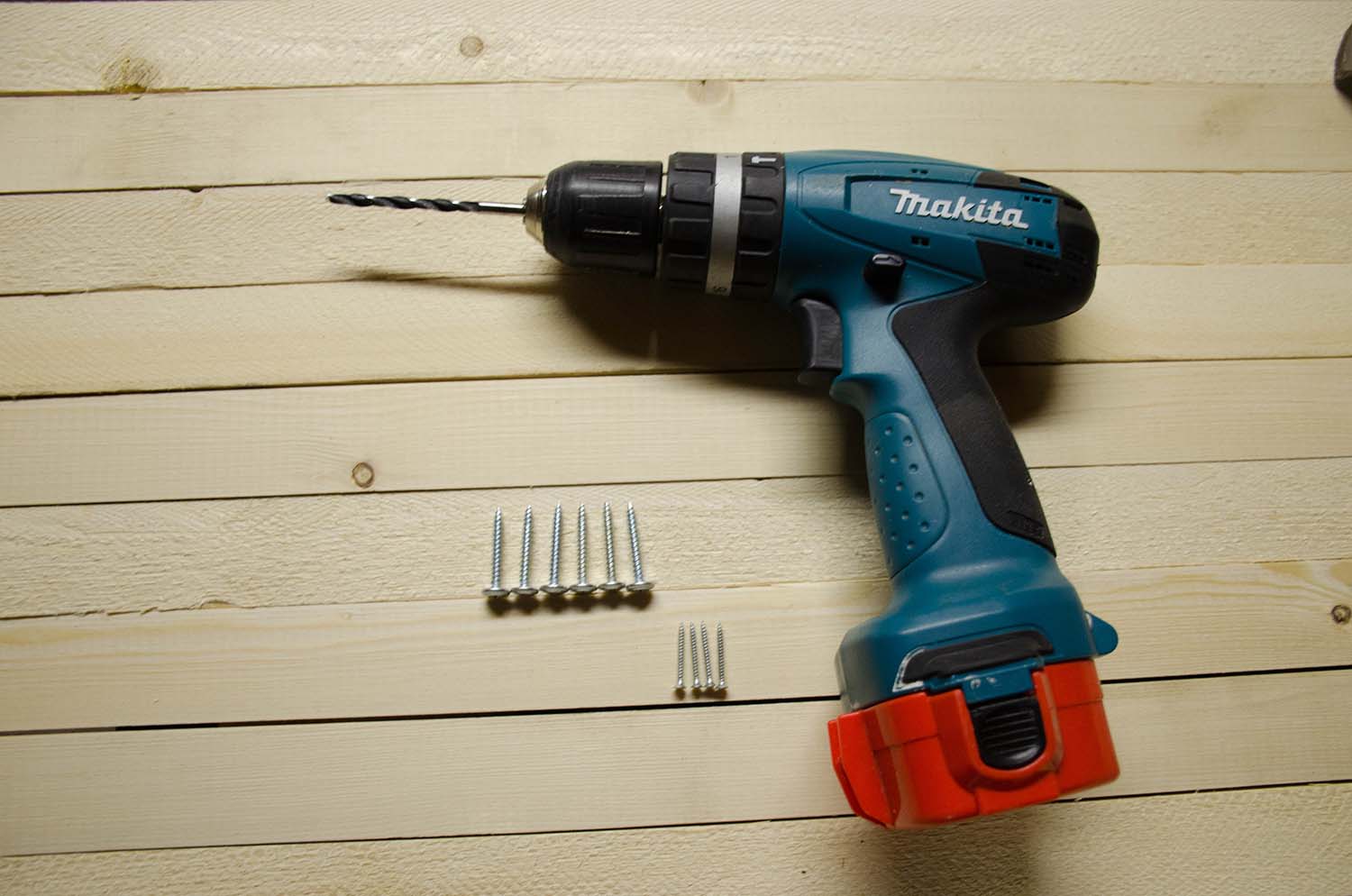
Plumber’s torch
Propane torches are the most common torch in plumbers’ toolkits because they are one of the more affordable types of torches, and the propane used for fuel is easy to store. Look for a torch that you can operate easily to meld metals together through a process called “sweating.” You may also want to shop for a torch with an interchangeable tip that you can replace with one of a higher quality to improve its functionality.
Cordless drill
Cordless drills are a portable tool that plumbers can use to quickly drill holes into walls, pipes, or any other surface. Look for a drill with a rechargeable battery that has a long life. You may also want to find a drill that comes with a manufacturer warranty in case the tool malfunctions and needs to be replaced.
Borescope
Borescopes are small cameras that help plumbers see into areas that have obstructed visibility, such as inside a pipe or behind a wall. Be sure to look for a borescope that offers a wide range of views that will allow you to see the full scope of any area. It is also important to buy a borescope with a high-quality camera that provides a high-resolution image.
Where to buy this equipment
These tools are available at most major hardware stores. Some tools, like a borescope, are specialized tools that come at a high price point, so you may want to consult multiple reviews to ensure you find a tool that will work for your needs. In this case, you can shop directly from the manufacturer of the tool via the manufacturer’s website.
Other equipment
There are a few additional things that plumbers should keep handy. Tools like tape, wire, and paste are versatile and can be used in a variety of situations, making them essential in every toolkit.
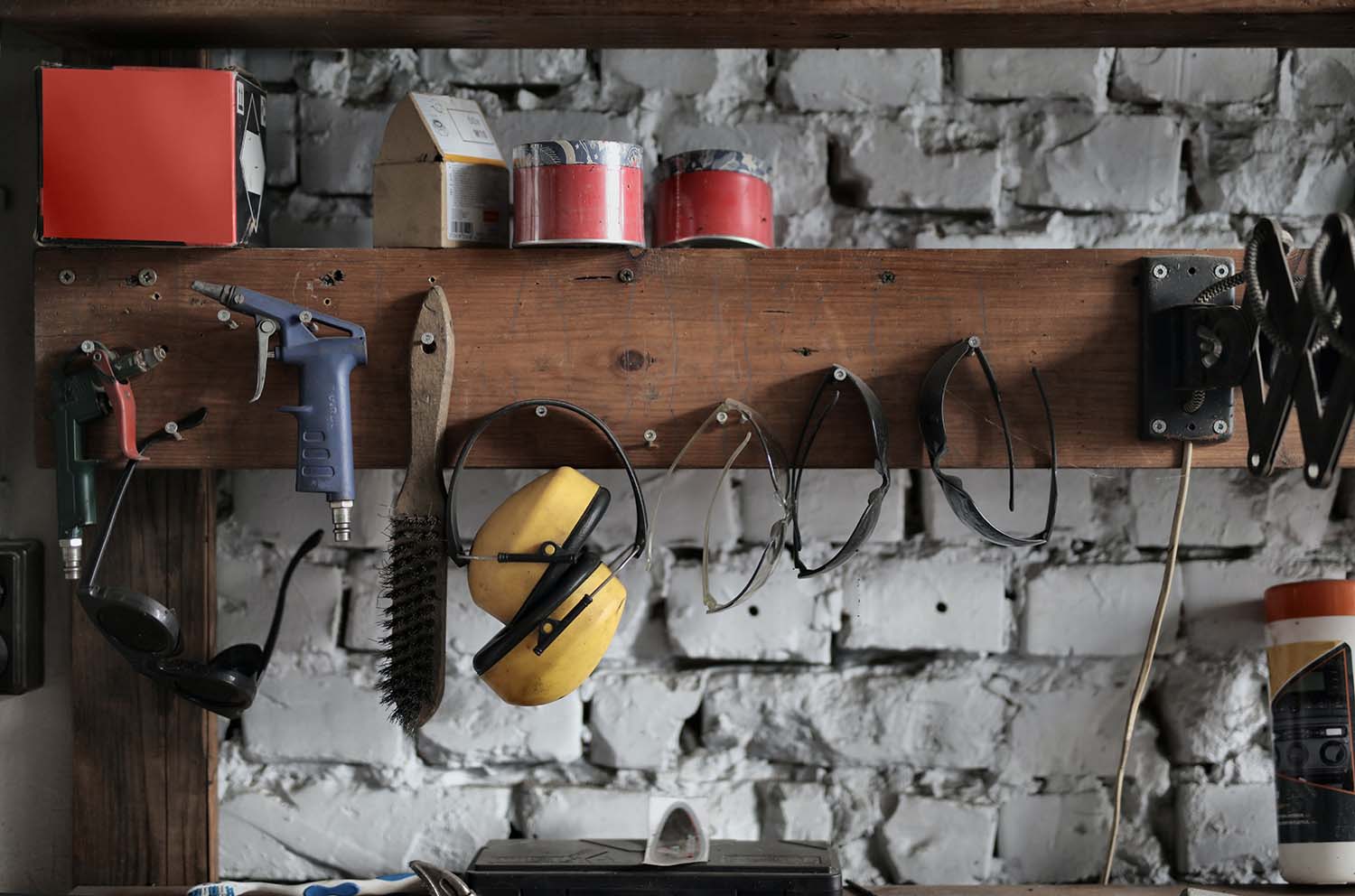
Plumber’s tape
Plumbers often use this specialized tape to wrap around pipe joints to ensure the joint can screw on easily and then form a watertight seal. It is particularly useful for stopping leaks that occur at a pipe joint. Look for a roll with a large quantity of tape that will last a long time.
Snakes and augers
Drain snakes and augers are used to unclog drains. Snakes are designed to address clogged drains that are indoors, while augers are designed primarily for outdoor use. As a plumber, you will need both snakes and augers in order to prepare for any clog or drain cleaning task you may encounter on the job.
Soldering tape, wire, and paste
Plumbers use soldering tape because it is a heat-resistant type of tape that can be affixed to metal pipes without damaging the pipes or leaving behind sticky residue. Similarly, plumbers use waterproof glue or putty to create seals on wet surfaces. They also use tracer wire to help identify the location of pipes that are buried underground.
Where to buy this equipment
Many of these items are commonly used by homeowners for DIY projects, which means you can buy these tools at most local hardware stores. However, local hardware stores may not sell the quantities that you need for your business to complete a lot of jobs. Check your local plumbing supply store or your favorite brand manufacturer for bulk ordering options.
Software: Another Essential Tool for Plumbers to Boost Efficiency
In addition to tools for completing plumbing jobs, businesses also need software to keep operations running smoothly. Software boosts efficiency by automating essential tasks like route planning and accounting. This saves managers time, so they can focus on other tasks that can’t be automated.
When you shop for software of any kind, consider important factors such as:
- What size business the software is designed for
- Whether the software is cloud-based or deployed on-premise
- If the software price fits into your budget
- If the vendor offers a free trial
- How user-friendly the interface is
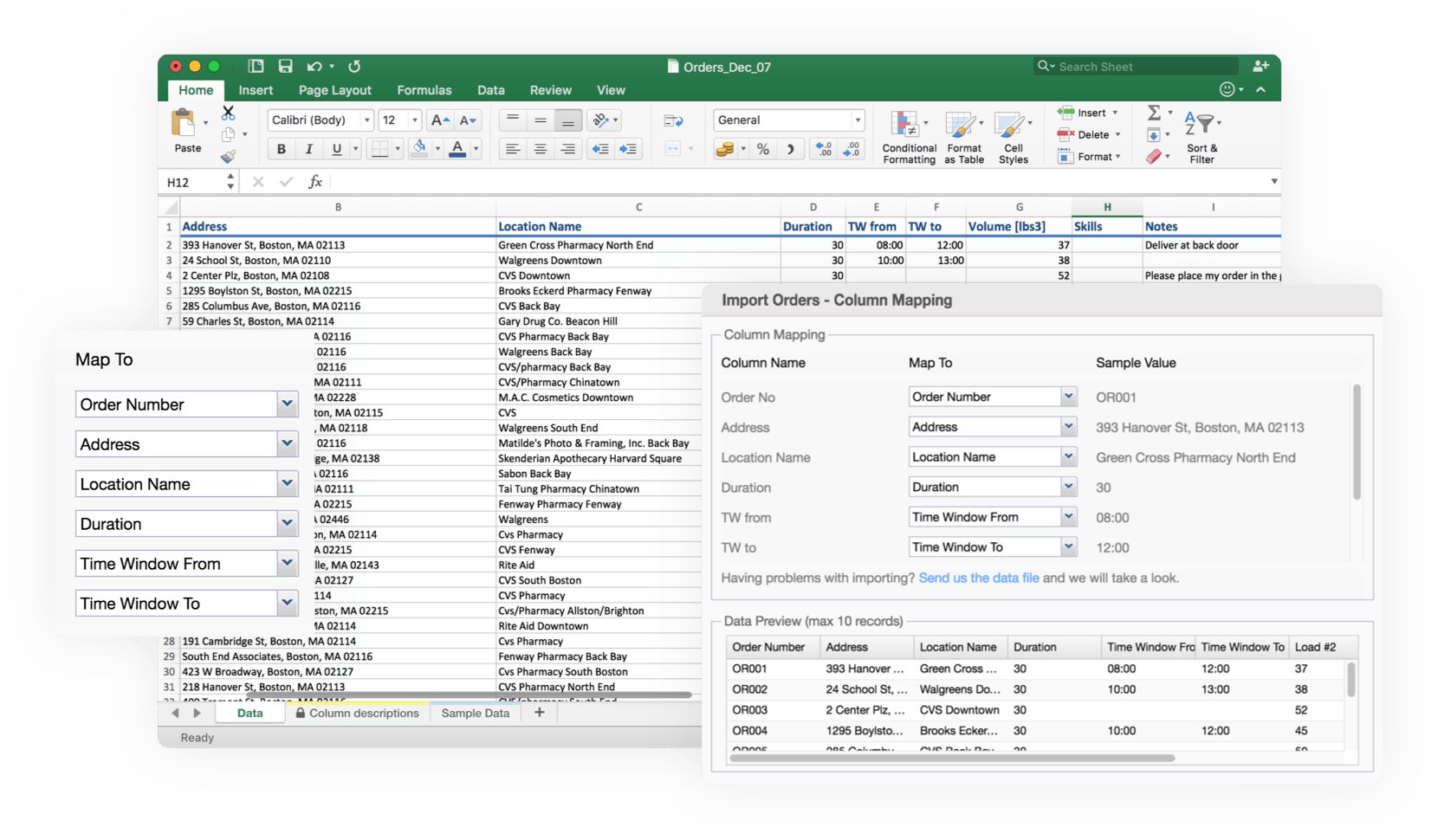
Routing and scheduling software
Plumbing businesses need to maximize the number of jobs they’re able to complete in order to increase profits. The best way to do this is through route optimization. Routing and scheduling software automates route optimization by accounting for factors like job site locations and scheduled service times to plan routes.
When shopping for routing software, there are a few key features to look for:
- Routing and scheduling to automatically schedule jobs based on service request data and generate routes to various job sites
- Schedule optimization to create schedules that account for employee availability
- A mobile app to accommodate the mobile nature of your plumbing business
Accounting and bookkeeping
Bookkeeping software automates key tasks like expense tracking and invoicing. This reduces accounting errors by as much as 90%. This is vital, as even small accounting errors can lead to major discrepancies in bookkeeping that could lead to incorrect information on tax documents. Look for a solution that can help reduce the margin for human error in your accounting by prioritizing features like:
- Expense tracking to help facilitate accurate reporting
- Invoicing to facilitate billing and ensure customers receive invoices and payment reminders
- Tax prepping to help prepare and submit tax documents
Customer relationship management
CRM software automates marketing tasks and improves the customer experience. Seventy-four percent of businesses in a recent analysis stated they saw improvements in their customer relationships after implementing a CRM. Look for a solution that prioritizes customer relationships and provides features like:
- Marketing and email templates to save you time when sending customer communications
- Reports to show how successful your marketing efforts are
Implementing the right software saves your business time and helps improve productivity by streamlining workflows, so plumbers can focus on important tasks that can’t be automated. Software can also boost profits by lowering costs. For example, one food delivery company lowered fuel costs by leveraging OptimoRoute’s route planning tool to reduce its mileage by 20%.
Try OptimoRoute free for 30 days to see how it can help lower costs for your business!
Try OptimoRoute™ for Free
No installation or credit card required


